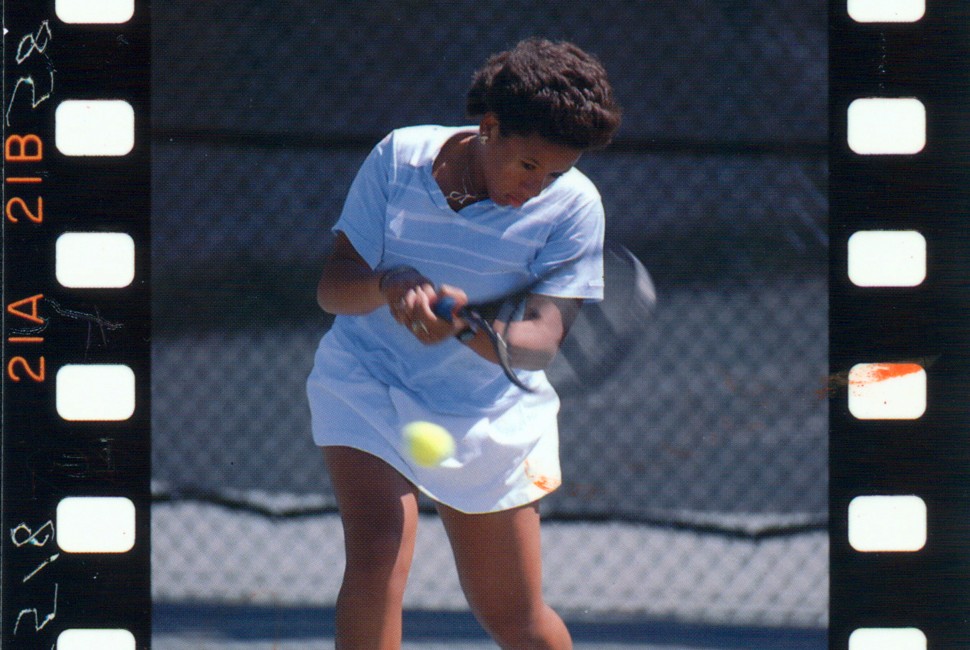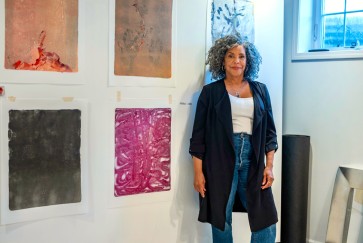In commemoration of 50th anniversary of Title IX, Northwestern is hosting a three-day series of panels and events Oct. 27-29 that will amplify women’s voices on how their lives were changed for the better because of Title IX and the work that remains.
Northwestern Medill assistant professor Melissa Isaacson’s life was forged by the passage of the 1972 law known as Title IX that revolutionized athletics for women and girls and set the stage for the ongoing struggle for gender equality.
Inspired by athletes who have since changed the world of sports and in collaboration with partners from across the University, Isaacson has put together three days of events exploring the legacy and future Title IX and to bring awareness to the issues still impacting high school and college athletics, education and gender equity.
“Title IX at 50: Past. Present. Future.” will feature voices from professional sports, business, journalism and academics. It kicks off with an opening event, featuring Mary Carillo, who broke barriers in covering men's sports and is widely considered one of the best women sportscasters in the country, and Northwestern alumna Katrina Adams, the first African American president and CEO of the United States Tennis Association, who won the NCAA doubles title with partner Diane Donnelly in 1987.
Isaacson talked to Northwestern Now about the law intended to prohibit sex discrimination in education and level the playing field for women athletes, the three days of events and her own story of competing in Illinois high school sports.
What makes this different from events held at universities throughout the country this year?
One of the things I am most excited about — and I believe makes this event really special — is the fact that it encompasses so many different parts of the University — from Medill to Athletics to Kellogg to the law school to the Women’s Center. Students and faculty from Weinberg, SESP, Communications and the School of Professional Studies are expected to attend, and our opening night event will be held at the Galvin Recital Hall in Bienen’s Ryan Center for the Musical Arts.
The Athletics department, under the leadership of Derrick Gragg, Combe Family Vice President for Athletics and Recreation, was especially interested in collaborating with the rest of the campus for our event, and the partnership has been terrific.
What convinced you the Northwestern community would benefit from learning more about Title IX?
When I ask my students what comes to mind when they hear the words “Title IX,” the first thing most think of is protection against sexual harassment and assault on college campuses. That is, of course, a vitally important component of Title IX — a civil rights law that prohibits discrimination on the basis of gender in any education program or activity that receives federal funding.
But it’s interesting that when I tell them my life was forever changed when, as a teenager, I was suddenly given access to organized team sports, the “Boys’ Gym” at our high school and life lessons that little boys receive when they are given their first t-ball uniform at age 6, they want to hear more. Our event will demonstrate to our students in no uncertain terms just how much women have benefitted from Title IX with one session in particular, called “From Athlete to C-Suite …,” illustrating the career benefits to women post-Title IX.
Why did you opt to not “celebrate” the 50th anniversary?
While it is certainly worth pausing in 2022 and realizing how very important the passage of Title IX was, perhaps the most important law of the last 50 years, it is just as appropriate to examine how much further we need to go.
A law that theoretically allowed us into the gym and gave us uniforms and access to organized sports equal to that of males sounded great in 1972. But 50 years later, the NCAA’s Title IX at 50 Report, “The State of Women in College Sports,” tells us that compliance is still far from where it needs to be; and participation numbers for girls and women of color are alarmingly low as are the number of jobs in coaching and administration for women. Prohibiting discrimination on the basis of sex has also opened the door to a wider interpretation of the law. In general, the future for women in this country as it relates to the equality Title IX promised us, is of paramount importance now more than ever. And it feels much more like a time of great concern than celebration.
How did the law evolve to become the most important protection against sexual harassment and sexual violence on college campuses?
Over time, court cases have interpreted the law to require schools to protect students from sex-based harassment and sexual violence. Under Title IX, officially titled the Patsy T. Mink Equal Opportunity in Education Act, survivors of sexual violence can legally hold their schools accountable for keeping them safe. And Title IX applies to all colleges and universities that receive any federal funding, including student financial aid.
Our panel, “Sexual Assault and Harassment on Campus: Title IX’s Changing Role,” will get together a range of legal scholars, including Suzanne Goldberg, deputy assistant secretary for the U.S. Department of Education, with distinct perspectives ranging from challenging administrative socialization to promoting less punitive forms of mediation.
What are some other highlights of the three days?
We're so proud of the event we have put together over these three days. It's impossible to highlight any sessions over the rest but on Friday, among the sessions on our schedule is former U.S. Senator and two-term Indiana Governor Evan Bayh, who will treat the audience to personal stories of the origins of Title IX, which was co-authored by his father Birch Bayh.
We will also have a screening of the 2022 Oscar-winning documentary short “The Queen of Basketball,” followed by a discussion with Lucy Harris’ daughter Crystal Stewart Washington and the New York Times bestselling author Andrew Maraniss, whose book on the first U.S. women’s Olympic basketball team, “Inaugural Ballers,” was released last week.
Saturday’s sessions at the Walter Athletic Center include an examination of the inequities that endure in this 50th anniversary year with Amy Wilson, the author of a NCAA’s Title IX at 50 report, former Women's Sports Foundation president Donna Lopiano and University of Michigan professor Ketra Armstrong. That's followed by a panel moderated by USA Today columnist, CNN commentator and Medill alum Christine Brennan, and featuring two of Northwestern's winningest women's coaches Kelly Amonte Hiller and Kate Drohan, along with senior administrators Janna Blais and Kristina Minor on the shortage of women in coaching and administration across the U.S.
Who did you work with most closely in planning the event?
This could not have happened without the considerable generosity of Medill Dean Charles Whitaker, University Provost Kathleen Hagerty and the hard work and passion of so many of my colleagues, including Therese McGuire, Caryn Ward, Kim Yuracko, Sarah Brown, Maria Sanchez, Kacie Dohrmann, Stacy Simpson and Melinda Cervantes.


